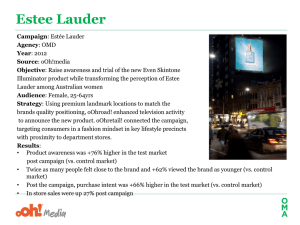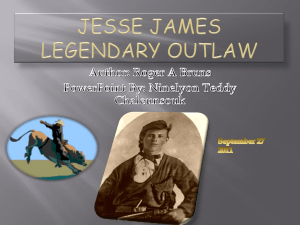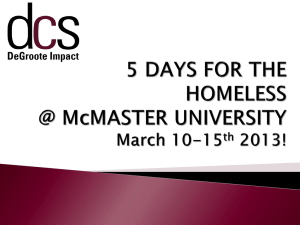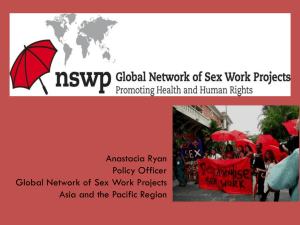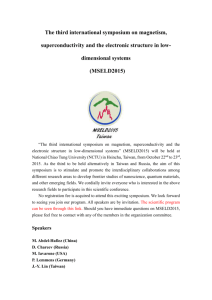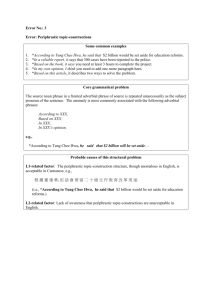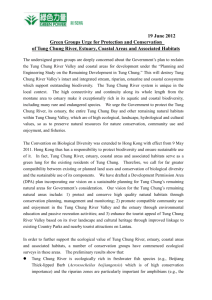Political Marketing & Political Campaign
advertisement
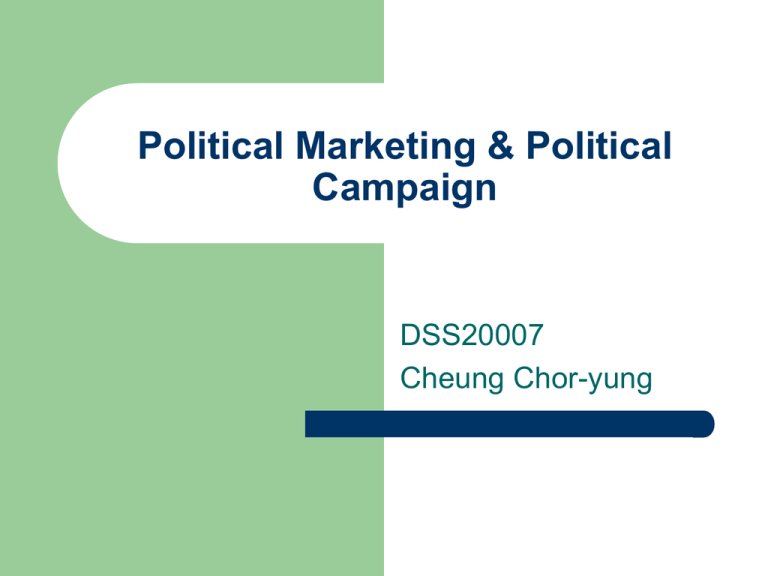
Political Marketing & Political Campaign DSS20007 Cheung Chor-yung The Rise of Political Marketing The nature of the electoral system The elected public offices The development of the mass media Marketing: Commercial Vs. Political AMA’s Definition: 1960 Marketing is “the performance of business activities that direct the flow of goods and services from producer to consumer or user.” Nature of activities: business Direction of activities: one way Product: goods and services Cutlip et al’s definition “Marketing is the management function that identifies human needs and wants, offers products and services to satisfy those demands, and causes transactions that deliver products and services in exchange for something of value to the provider.” Identification and satisfaction of human needs: two way communication Transactional activities From good/service to candidate Marketing of ideas Marketing of candidates Political marketing: application of marketing concepts & techniques to political campaigns Marketing Vs Propaganda Political Marketing Vs Propaganda Promotion of political ideas Competitive promotion Favours symmetrical communication Promotion of political doctrine (absolute truth) Authoritarian promotion Asymmetrical communication A Framework for Campaign A management technology for professional approach A list of variables for questions and essential elements A systematic assessment of problems and opportunities, of priorities and critical elements No formulas for success, but heuristics for discovery, reasoning and problem solving Rules of Conduct in Political Marketing Coherence Systematic Re-examination Minimal Differentiation/ Unique Selling Proposition (USP) Maximum Security Political Marketing: Main Steps Local Case: Tung Main Line of Campaign Image: Heavy weight Most promising candidate Local Case: Ng Main Line of Campaign Image: Political leader A credible candidate Taking the Temperature Tung: Majority support for the Selection Committee The public: Livelihood issues Ng: Electorate torn between democracy and China Support for rural candidate vs. support for democratic candidates Analysis of Opponents Tung vs. Yeung China connection vs. Impartiality Business experience vs. lack of administrative experience Both did not understand livelihood issues Ng: double seat double vote elections Means Available Tung Professional support Focus of the media Good mainland and international connections Ng Party machine One of the focuses of the media No go areas in the NT Boycott by pro-China media, etc. Tung’s Campaign Objectives Overwhelming support from the Selection Committee Crucial Support from the public Support from major political parties Support from the Civil Service A real race election International goodwill and support Ng’s Objectives Promotion of democracy Establishment of a stronghold for the democrats in NT West Enhancement of people’s civic awareness Tung’s Campaign Plan Multi-media approach Intensive visits to districts Statesman-like Image with a lot of experience in coping with crises Caring and open-minded Tung’s Themes China-HK Linkage Smooth Transition Economic Prosperity Rule of Law Livelihood Issues Gradual Development of Democracy Attack on the Democrats Ng’s Plan Multi-media Approach Intensive visits in the district Image of an honest, principled, democratic leader not afraid to stand up for HK Themes: Democracy, Rule of Law, Human Rights Conducting the Campaign: Tung Stage One Preparation & Positioning Campaign Team Election Platform Image Consolidation Media Training Issues Understanding Research Back-Up Medical Monitoring Logistics: Campaign Office, Press Monitoring System, Contact lists, etc. Tung: Stage Two- Launch/ Nomination Remarks supporting the Civil Service High profile courteous visits to major parties Media monitoring & prompt responses Opinion polls monitoring Fight against smear campaign High Profile Declaration of Candidacy Intensive communications with SC members Extensive interview with media (But only 1 live interview in Cantonese) Speaking Platforms: World Economic Forum Tung: Third Stage- Finale 2nd round lobby of SC members: noncommitted members More efforts in public visits & comments on public issues Less emphasis on political issues Heavy preparation for Q & A sessions Conducting the Campaign: Ng “Street Campaign” 5:40am-Bus Stops 8:30am-Restaurants Noon-Shopping Malls 2:30pm-Meet the Public 4:30pm-Wet Markets 8:00pm-Home Visits 10:00pm-Campaign Meeting Long Distance Strategy: LegCo Medium Distance Strategy: RegCo Short Distance Strategy: DB Evaluation



